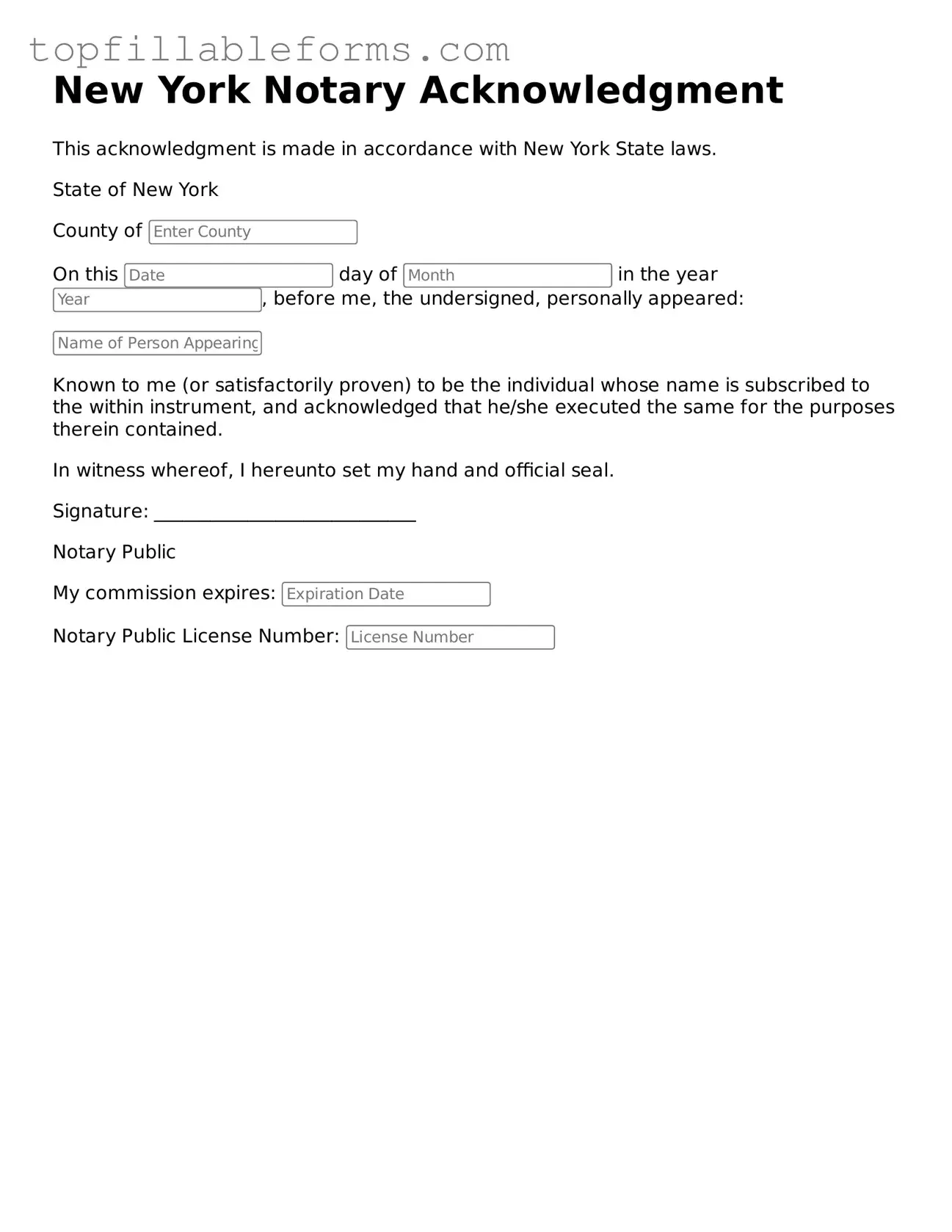Attorney-Verified Notary Acknowledgement Template for New York
The New York Notary Acknowledgement form is a legal document that verifies the identity of individuals signing a document. This form ensures that the signatures are authentic and that the signers are acting voluntarily. It plays a crucial role in various legal transactions, providing a layer of protection against fraud.
Open Notary Acknowledgement Editor Here

Attorney-Verified Notary Acknowledgement Template for New York
Open Notary Acknowledgement Editor Here
Finish the form now and be done
Finish your Notary Acknowledgement online by editing, saving, and downloading fast.
Open Notary Acknowledgement Editor Here
or
▼ PDF File
